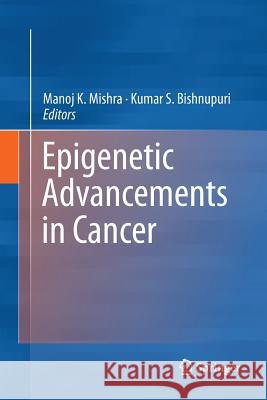Epigenetic Advancements in Cancer » książka
topmenu
Epigenetic Advancements in Cancer
ISBN-13: 9783319797069 / Angielski / Miękka / 2018 / 246 str.
Kategorie BISAC:
Wydawca:
Springer
Język:
Angielski
ISBN-13:
9783319797069
Rok wydania:
2018
Wydanie:
Softcover Repri
Ilość stron:
246
Waga:
0.36 kg
Wymiary:
23.39 x 15.6 x 1.4
Oprawa:
Miękka
Wolumenów:
01
Dodatkowe informacje:
Wydanie ilustrowane











